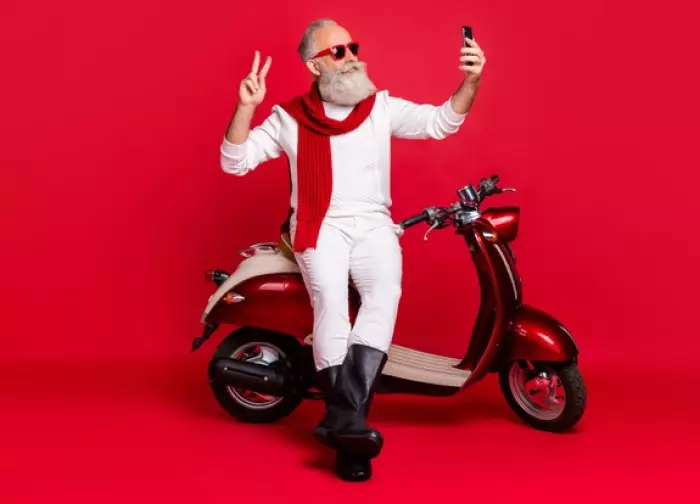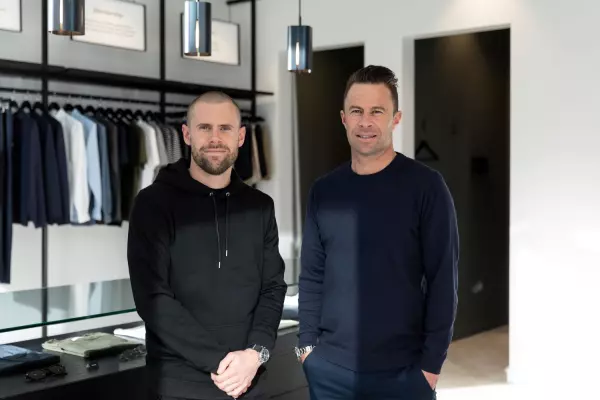No one knew how to answer the telephone when it was invented. The man behind it, Alexander Graham Bell, advocated for people to say “Ahoy”. His contemporary Thomas Edison was a vocal supporter of “Hello”, which in the 18th century was used to convey surprise. Clearly, Edison made the right call, but Bell answered his phone with “Ahoy” for the rest of his life, as a matter of principle.
How we greet and interact with others signals to the outside world the kind of person we are, or hope to be. As such, manners help us form an opinion of others in mere seconds – no matter the means of communication. They may change with the times and personal preferences, but they are always found within the wider structure of a well-functioning society. "Manners are of more importance than laws," wrote Irish philosopher and statesman Edmund Burke.
The School of Life Guide to Modern Manners is one of many self-help books on the subject. "Social life is full of minor but acute dilemmas," reads the introduction. "The dilemmas are – at one level – pathetically insignificant. But they sit astride some of the largest and most serious themes in social existence: how to pursue our own agenda for happiness while at the same time honouring the sensitivities and wishes of others; how to convey goodwill with sincerity; how to repair damage caused by inattention or self-centredness; how to be kind without being supine or sentimental."
Another, Modern Etiquette Made Easy, sold out within 24 hours in March. Author Myka Meier believes the younger generation of British royals, as well as modern complexities, has piqued our interest. In an interview with Town & Country magazine, she said: "We are constantly connected to our devices and people have realised that we are losing the soft skills that you need to use in person. Etiquette is way more than just which fork and knife to pick up (though I do dedicate two chapters in the book to dining); it is all about social intelligence."
Equipped with etiquette, Meier gives her followers the confidence to move through the world, and royal balls, with grace. But it's not about social gains, she says. "Etiquette is all about kindness, respect, consideration, and putting others first."
Minding their manners, 59 per cent of the over-50-year-olds who participated in the Australian Seniors Series: Modern Manners Survey thought etiquette standards were poor. Many said millennials' ideas of social etiquette didn't make sense to them.
The multi-agency Attitude Gap Challenge led by the Auckland Co-design Lab looked at the difference between the attitudes of young job seekers and those of older employers in South Auckland – intending to use the insights across New Zealand. The study found that 'attitude' is made up of a complicated mix of factors, including expectations of behaviour, understanding values and cultural 'norms' and language sets derived from both generational and cultural paradigms.
We should mind the gap. A recent study by the Organisation for Economic Cooperation and Development (OECD) shows a balanced set of cognitive, social and emotional skills play a significant role in improving children's economic and social outcomes. According to Auckland Council, raising the social and emotional skills of an eight-year-old in New Zealand leads to a 15 percent reduction by age 16 in self-reported behaviour problems, including drinking, smoking and violence. The impact of raising cognitive skills was statistically insignificant.
"People are really looking at the advantages etiquette skills can contribute to their lives and in business," says the director of the Australian School of Etiquette in Sydney, Zarife Hardy. Her corporate clients prioritise grooming and attire, as well as posture, presence and body language. Voice articulation is a rapidly growing area, to ensure workers can speak clearly with energy and clarity either over the phone or face-to-face.
Research by Harvard University, the Carnegie Foundation and SRI International has consistently shown that more than 85 per cent of job success is based on soft skills. We've long been warned about artificial intelligence taking over our jobs, but interpersonal skills can save us.
"If you are pleasant, enthusiastic and courteous, people will want to be around you,” says Hardy. “People will easily remember why they liked you, and in business they will keep coming back. Business owners may have a strong desire for their staff to be 'likeable' or want them to connect with a variety of generations, cultures and demographics."
 Australian School of Etiquette director Zarife Hardy
Australian School of Etiquette director Zarife Hardy
A study by the New Zealand Work Research Institute for Te Taura Whiri i te Reo Maori (the Maori Language Commission) has shown organisations which incorporate te reo me nga tikanga Maori (Maori language and culture) in their operations enhance workers' sense of mindfulness and cultural satisfaction. "Those organisations quickly see a wider pay-off through increased staff satisfaction, opportunities for including a range of diverse views, and further professional development," says Professor Jarrod Haar (Ngati Maniapoto and Ngati Mahuta), an associate director of the institute.
Opening meetings with karakia (prayers) and spending time to get to know everyone present (whakawhanaungatanga) are not just polite cultural practices, they encourage inclusivity and collaboration. "I think we will see a greater positive shift from New Zealand businesses as they understand the importance of the growing Maori economy and its contribution to business and the Aotearoa economy more broadly," adds Haar.
 Professor Jarrod Haar, associate director at the New Zealand Work Research Institute
Professor Jarrod Haar, associate director at the New Zealand Work Research Institute
As we adjust to pandemic living, the cultural importance of manners takes on new meaning. Avoiding shaking hands and covering up our smiles with a face mask can be reverse signs of respect. "The requirement for social distancing has actually demonstrated that we still care for each other and still consider the importance of other people's welfare," says Dr Neal Curtis, associate professor of media and communication at the University of Auckland. "This is a sign of the respect that is at the root of a system of manners."
Prime Minister Jacinda Ardern’s plea to New Zealanders through all the covid-19 alert levels has been to “be kind”. As modern life gets that much more complicated, showing that we care helps us to get through. "There is more awareness around etiquette and manners as we really need to respect them at the moment," says Hardy. "Those little actions and words make a very big impact."
In an age when working from home has become much more common, the importance of virtual etiquette has intensified. In Zoom Rooms, body language and eye contact become more noticeable as we scan for social clues and cues. A code of digital soft skills is developing in real-time as we decide when it's appropriate to attend meetings with video on (if everyone else has) or off (when more people are listening than talking), as well as pausing for lags before speaking.
For the younger generation surrounded by digital applications, it can be hard to learn interpersonal skills. Hardy and her team help children who have spent too much time on screens to learn relationship skills, including how to greet people with confidence and hold a genuine conversation.
Yet digital is creating more nuanced manners for those who know how to work it. Take the introduction of mobile phones, for example. "Mobile phones seemed to break the etiquette of face-to-face communication,” says Curtis, “but often this was because a new idea of respect was developing about not ignoring someone who is trying to contact you, especially when we are 'always on' and a failure to take a call might be seen as a snub. The implicit development of new codes of conduct is an example of the persistence of these soft skills."
In the Seniors Series survey, over-50s thought having a phone out at a meeting was poor etiquette. However, their social media manners differed from those of millennials, in that they did not consider over-sharing as an online 'no go' area.
"We might say that our manners are becoming incredibly refined, but also diversified," says Curtis, in regards to social media. "This leads to generational misconceptions that younger people are losing their manners or lack social etiquette, when they are simply devising new forms suited to their environment."
There are many creative solutions for always-on communication, from acronyms to emojis. As Canadian internet linguist Gretchen McCulloch explains in Because Internet: Understanding the New Rules of Language, even punctuation becomes poignant. For example, the end of a text message is assumed to be the end of a reply, so a full stop can seem passive-aggressive. When speaking, a period at the end of a sentence requires a lower intonation, signalling a more serious mood. An endpoint on a positive message could, therefore, come across as sarcastic.
Says Curtis: "As we move to text-based communication, we have added a whole range of linguistic and communicative supplements that help us in the use of soft skills in very precise ways. If anything, new technologies and modes of communication show how we are attempting to retain and augment all the social subtleties (and manners) of face-to-face communication."
Working through a global pandemic, we're now rethinking how to respectfully close the distance over email. When the usual pleasantries such as “I hope you're well” sound loaded, Time magazine makes a case for including a “Stay safe” in correspondence, while the Ladders careers site favours “Stay well”. Both see the need to be thoughtful, but is it necessary to acknowledge covid-19 at the start of every email? We could follow Edison's etiquette and simply say “Hello”. It's the connection itself that counts.











